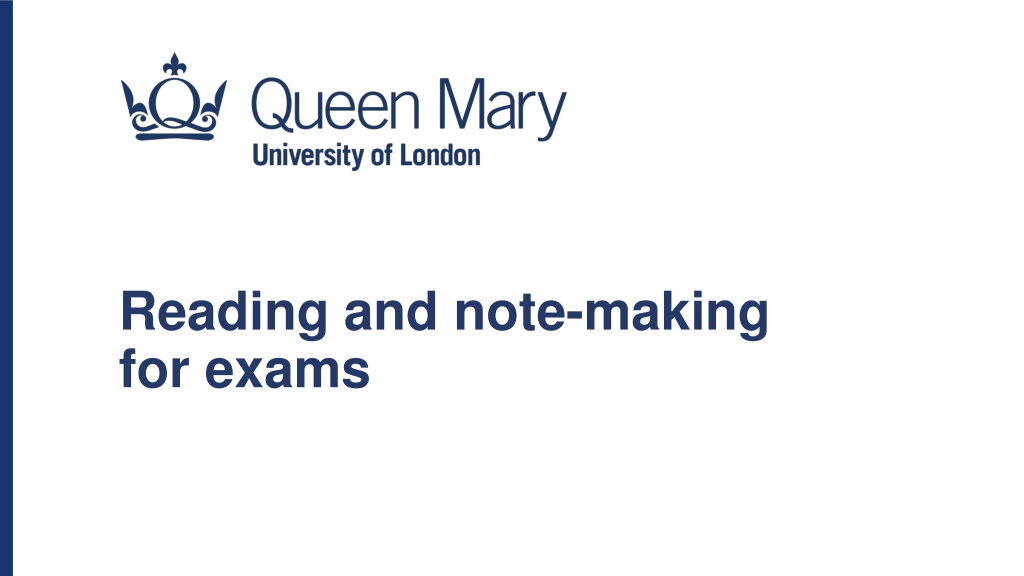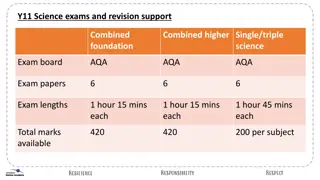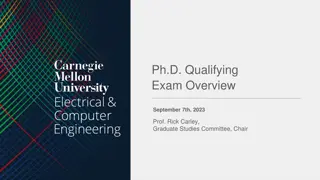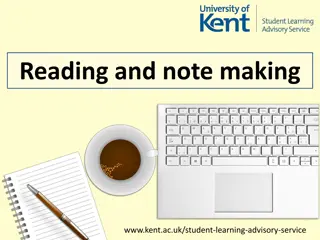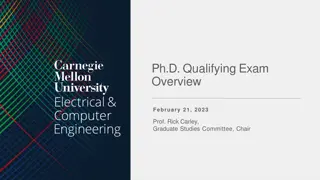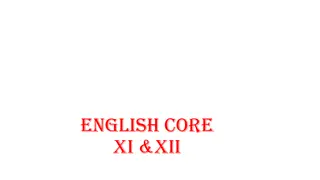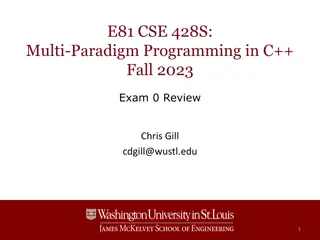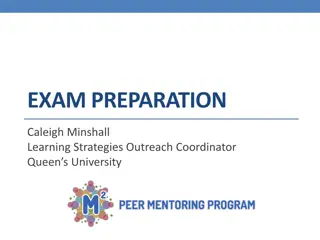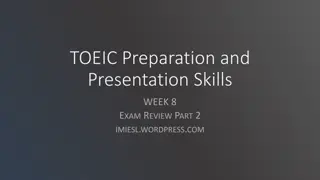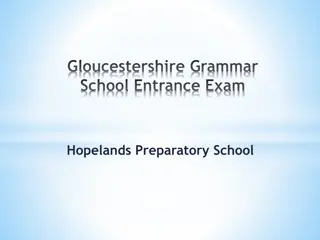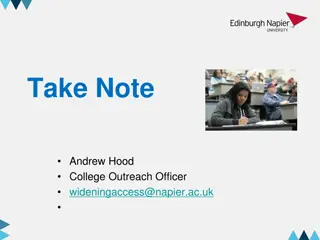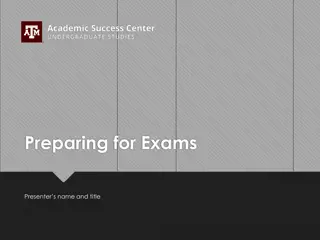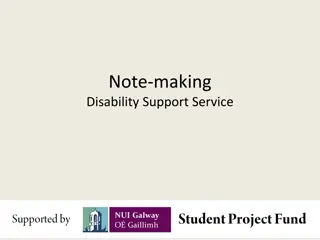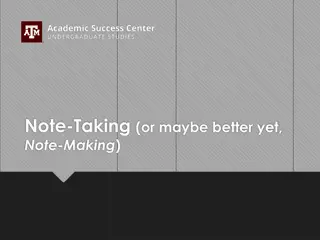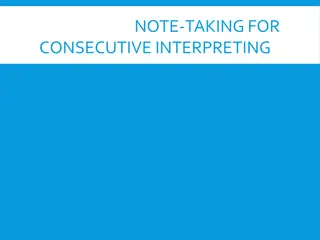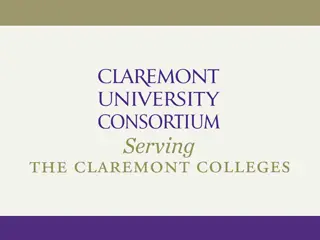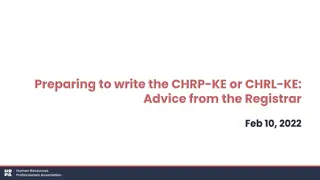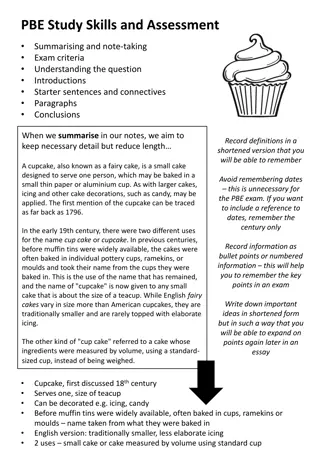Effective Note-Making Strategies for Exam Preparation
Understand the importance of selective reading and note-making for exams. Learn what to read and what to avoid, along with tips on making efficient notes. Being selective, focusing on quality over quantity, and using effective note-making techniques can enhance your exam revision process.
Download Presentation

Please find below an Image/Link to download the presentation.
The content on the website is provided AS IS for your information and personal use only. It may not be sold, licensed, or shared on other websites without obtaining consent from the author. Download presentation by click this link. If you encounter any issues during the download, it is possible that the publisher has removed the file from their server.
E N D
Presentation Transcript
Reading and note-making for exams
Learning Outcomes Understand the importance of being selective in what you read for revision. Reflect on why we make notes as part of reading and revision Apply strategies to make your note-making more effective
What is useful to read? Reading is usually the most time-consuming aspect of exam prep. So it s important to do it selectively. Generally, you should be reading to consolidate knowledge and fill-in small gaps. Useful readings include: lecture notes, textbook excerpts, encyclopedia articles on topics that will come up in your exam and review articles in journals. These are useful formats because they are information-dense and tend to cover broad aspects of a subject quite succinctly.
What is less useful to read? It s generally not advisable to spend lots of time reading new material. A journal article might give you lots of detailed information that might be relevant to your exam. But it will also: Include information that isn t directly relevant. Include more detail than you ll need on the method and findings of this particular study. Only cover one perspective on the subject.
Be selective Of course, the more you re able to read for your exams, the better. But you only have a limited amount of time to revise for each exam. So... Plan your time. Be selective in what you read. Focus on the quality rather than quantity. Make sure you re making effective notes.
Tips: Making notes as you read Don t underline or highlight everything. Think about why you are making each note. Will it help you to revise later? You want your notes to condense the most useful parts of the thing your reading. Write potential exam questions at the top of the page.
Tips: Making notes as you read If you do copy out something verbatim from the text, put it in quotation marks and put a page reference in the margin. It s often better to paraphrase information than to quote. Write down your own observations in your own voice, rather copying the style of the author This will help you to write about your subject later on.
Why we make notes Reinforce key terms. Record basic factual information. Make note of an author s argument. Write the pros and cons of their argument. Note connections with other things you ve read. Flag questions you have about a text. Write down what you think so you re prepared to answer an essay question in your own words.
Note-making, not note-taking Notice how we use the term note-making rather than note-taking? Note-taking implies that you are doing something passive, like taking dictation. Note-making recognises that you are doing something creative that requires you to use critical thinking and apply understanding you ve gained from your course.
Reading notes: an example Heading with course/author info makes notes easier to organise Page numbers allow you to go back and check references Key points of author s argument set out clearly in quotes and with initials Key facts recorded Questions you need to follow up on flagged in different colour Reader s reflections are recorded in own voice Notes connections to other concepts/readings
Condense your notes Effective note-making can reduce the amount you have to read. If you can condense your notes on a chapter of a textbook to two sides of A4, you ll be able to revise that topic without going back to read the whole chapter. If you condense them again onto an index card, you ll be able to revise them even more quickly. And the act of condensing your notes will reinforce your knowledge of the topic.
More tips: More tips: To find more resources, access workshops and one-to- one support, visit: http://qmul.ac.uk/library/academic-skills
